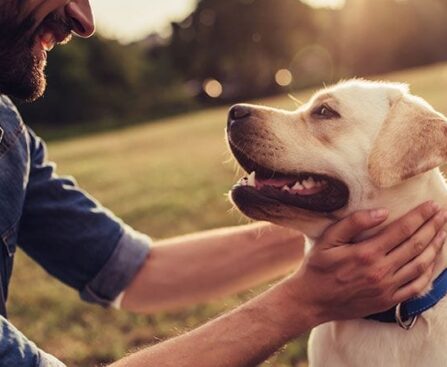One of the most important things that you can do to protect your pets from anxiety when moving is to prepare them for the move. Make sure that they know where to go to the bathroom and find their litter box. It is also important to teach your dog or cat where the exit door […]
One of the most important things that you can do to protect your pets from anxiety when moving is to prepare them for the move. Make sure that they know where to go to the bathroom and find their litter box. It is also important to teach your dog or cat where the exit door is. When a pet is nervous, accidents are likely. Don’t scold them, but allow them the time they need to adjust.
Safe spaces
Moving is an exciting time for you and your family, but it can also cause stress for your pets. Animals cannot communicate the way we do and they require structure and predictability to reduce anxiety. Moving will disrupt their routine and you will need to counteract the anxiety by providing them with things that will help them adjust to the new environment.
One of the first steps you can take is to give your dog plenty of attention. While packing, be sure to take frequent breaks to make your pet feel secure. Also, consider taking your dog outside so they can run around and exercise. It’s a good idea to organize furniture movers well in advance and find a pet sitter to care for your pet on moving day, consider boarding your pet at a boarding facility that your dog is familiar with. Alternatively, you can find a family member who can look after your pet during the move.
Moving can be stressful for everyone, but your pet is even more susceptible to anxiety than humans. The key to reducing their anxiety is to remember that pets need time to adjust and it’s not a good idea to leave them alone in a new home for more than a few hours.
Comforting your dog
Moving houses with a dog can be stressful, but there are a few tips you can use to make the transition easier for your pooch. Assign a responsible person to oversee the move, and prepare your pet for the move in advance. Set up packing boxes in front of your pet and reward calm behavior. If your dog whimpers at the sight of packing tape, hold it away from the dog so it doesn’t become a distraction.
Remember that your dog feels a great deal of stress when they’re in a new place, so make sure you give him extra love and attention. Especially during the first few days, avoid leaving him alone for long periods of time. Alternatively, find a trusted family member to watch your dog for a short time while you’re out.
Moving with a pet is a big transition for all of you. While some pets will embrace the move as an adventure, others will not. It is best to be patient with your pet and understand that the transition is far more difficult for your pet than it is for you. If your dog is exhibiting signs of anxiety, he is probably experiencing a great deal of stress. The following tips should help him get used to the new environment and feel more comfortable.
Setting up a schedule
One of the most effective ways to protect your pets from moving anxiety is by setting up a schedule. Your pets need a predictable routine to feel comfortable in their new environment. In order to minimize their anxiety, do not leave them alone for long periods of time. Ideally, they should stay with you during the first few days, so they can acclimate to their new surroundings. If you must leave them alone for a short period of time, find a trusted family member to stay at home with them.
If possible, establish a schedule that includes meals and rest time for your pets. Providing a consistent schedule for feeding time and break times can reduce your pet’s anxiety. For example, packing food and water in portable, anti-spill bowls can make your pet feel more comfortable. Keeping familiar items and objects in their new home is also helpful.
As long as you have a schedule, your pets should be able to get used to the new place quickly. Leaving them alone during the move may scare them and make them think you won’t be coming back. Keeping them around more will reduce their anxiety and prevent them from escaping or getting hurt.
Preparation for moving
Keeping your pets calm when moving can be a challenging task. New homes can be unfamiliar and can contain hazardous items. Your pets could become tangled in wires, chew on chemicals, and get into bug traps. Even items you’ve brought over may not be safe for them. In addition, they may tear up boxes that contain cleaning supplies and sharp objects.
To keep your pet calm, you can use soothing music and new toys to distract them from the unfamiliar environment. If your pet is especially stressed out, you can try pet pheromone sprays and natural supplements. If the stress is severe, you may need to consider prescription medicines. You can also hire a pet sitter to take care of your pets while you pack.
It’s important for pets to get used to a new space, but they also need time to adjust to their new surroundings. Setting reminders for feeding and walking can help your pet become used to the new place and its routine.


